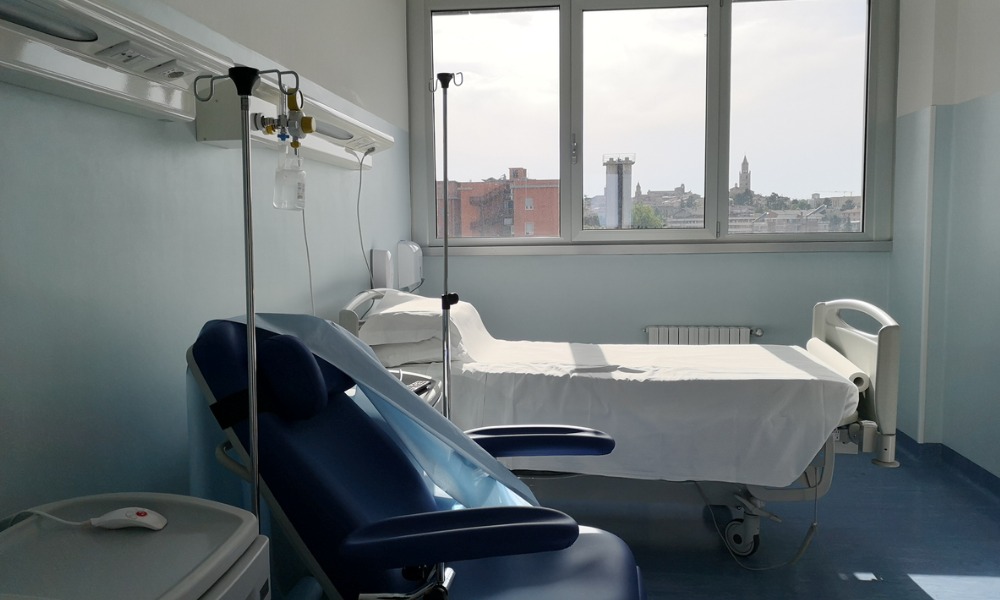No matter how much we dread going to a hospital when we’re sick or when we experience pain or discomfort, we rely on medical professionals to give us the proper remedy we deserve. However, when hospitals or their employees did us wrong, is suing a hospital for negligence or malpractice possible?
Is suing a hospital for negligence in Canada possible?
Hospitals are not absolved from exercising the proper standard of care. This extends to doctors, nurses, and other medical and non-medical personnel.
In Canada, patients have the right in suing a hospital for negligence or malpractice. Because a hospital cannot “act” on its own, their liability may result from the negligence or malpractice of its staff and employees.
Recent Articles
It also means that hospitals have the responsibility to hire competent employees. Hospitals must ensure that employees act within the standard of care expected of them, and to protect patients from further harm.
Vicarious Liability
Under Canada’s common law, the principle of “vicarious liability” states that employers can be held liable when its employees committed wrongful acts or when they are negligent in their duties.
This principle requires the following for it to apply in a case:
- an employer-employee relationship exists
- the wrongful or negligent act was done within the scope of employment
An exception to this principle is when an employee acted in their personal capacity, or their acts were outside the scope of employment.
This principle, which is frequently used in employment and labor law, also applies to medical malpractice or negligence, especially with regards to hospitals and their employees.
In a hospital setting, when a medical or non-medical employee commits malpractice or negligence that causes harm to their patients, the hospital can be held vicariously liable with the employee.
The application of this principle is important. A hospital – or any other entity or corporation – cannot “physically act” on its own but only through its stakeholders, officers, and employees.
Examples of hospital employees who can be held liable together with the hospital include:
- Doctors
- Nurses
- Pharmacists
- Non-medical staff
In the same manner, doctors can also be held liable for the employees they hire in their clinics.
Learn more about the basics of nursing malpractice under Canadian laws: its elements, its common examples, and the penalties when nurses are found guilty.
Negligence and Malpractice
As hospitals can be held liable for the acts of its employees, what are their acts that will allow plaintiffs to sue a hospital for negligence or malpractice in Canada?
In general, medical negligence or malpractice by hospital employees occurs when they act below the standard of care expected of them. It also includes inaction or carelessness on the part of these employees.
Some examples of these acts are:
- misdiagnosis and delay in diagnosing a patient
- wrongful administration of medicines and medical tests
- injury caused by a wrongful use of a medical device or tool
- failure to obtain prior consent from the patient or their family
Elements of medical negligence or malpractice
In general, the following are the elements when proving medical malpractice or negligence in Canada:
- The existence of a relationship between the patient and the healthcare provider employed by the hospital.
- The specific acts that are considered as breach of the required standard of care or negligence, expected of a careful or prudent healthcare provider or hospital staff.
- The damages, injuries, or harm that were suffered by the patient financially, mentally, or both.
- The connection between the patient’s injuries and the healthcare provider’s breach of standard of care or negligence.
Watch this video to know more about these elements, including some in-depth discussion of each element:
How can I sue a Canadian hospital for negligence?
If you’re aggrieved by any of the staff or medical practitioners employed by a hospital, here are some steps you can take:
1. Consult with a lawyer
Seek the advice of a medical negligence lawyer in your area right away. Your lawyer can assess your situation and tell you if you have a strong case against the hospital.
If they feel you don’t have a strong case, they can also provide you with alternative courses of action.
You can also use Lexpert’s directory of the best lawyers in Canada, which can also be filtered out by practice area, by province, and by city.

If you’re thinking of suing a hospital for negligence, contact a medical negligence lawyer in your area. If you’re in Halifax, for example, look for a Lexpert-Ranked best medical negligence lawyers in Nova Scotia using our directory.
2. Prepare your evidence
The next step in suing a hospital for negligence is to prepare evidence to support your claim. Your lawyer would tell you what documents are needed to establish medical negligence or malpractice.
3. File your case ASAP
Under the provincial limitation statutes, a civil case for damages is time-bound and must be filed within a specific period. For example, under British Columbia’s Limitation Act, civil claims must be filed within 2 years, whose ultimate limitation is up to 15 years.
Because cases for medical malpractice or negligence are considered as civil claims for damages, these will be governed by such limitation. Once injury, loss, or damage occurred, it’s best to consult a medical negligence lawyer ASAP so that a civil case will not be barred by these limitations.
How much can I sue a hospital for negligence in Canada?
When suing a hospital for negligence in Canada, there are two types of damages that you can claim against the hospital or its medical staff:
- general damages or non-pecuniary losses: these are awarded for the pain and suffering of the plaintiff, such as mental distress or loss of a loved one.
- special damages or pecuniary losses: the actual monetary or economic aspect of the plaintiff’s loss or injuries. This includes hospital bills, lost past and future income, costs of future care, etc.
Cap on General Damages
Canada’s common law has provided a limit or a cap on the general damages that plaintiffs may recover. At the time that the decision was rendered, the cap was at C$100,000. This is increasing every year to adjust to inflation; as of 2023, this limit or cap is now approximately C$400,000.
This limit does not apply to special damages. Any claim for special damages must be supported by evidence such as actual records, bills, or receipts.
To know more about suing a hospital for negligence in Canada, contact the best medical negligence lawyers in Canada as ranked by Lexpert.





